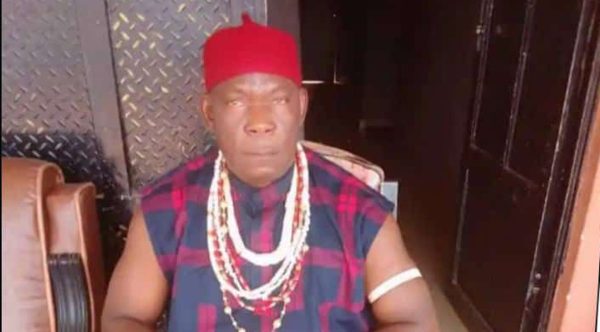A Lagos High Court sitting at Tafawa Balewa Square, on Friday, refused to grant bail to Eze Ndigbo of Ajao Estate, Lagos State, Frederick Nwajagu, charged with terrorism. Igbere TV can confirm.

Nwajagu was arrested by operatives of State Security Services over an alleged threat to invite members of the Indigenous People of Biafra to Lagos to secure property of Igbo people in the state.
According to News Agency of Nigeria (NAN) Nwajagu is standing trial on a nine-count charge bordering on attempt to commit terrorism, financing terrorism, participating in terrorism and meeting to support a proscribed entity.
On Friday, the judge denied the defendant bail and ordered accelerated hearing of the case. According to Justice Yetunde Adesanya, the court is constrained to refuse Nwajagu’s bail application based on the seriousness of the alleged offence and the severity of its punishment.
Adesanya held: “Based on the seriousness of the offence, the severity of the punishment and the proof of evidence before the court, the court is constrained to refuse the bail application.
“The application for accelerated hearing is hereby granted.”
The judge, however, directed correctional centre officials to make an arrangement for the defendant to visit a public hospital for treatment.
At the last adjourned date, counsel to the defendant, Mr E. C. Obiagu (SAN), prayed the court to grant bail to the defendant on medical grounds.
He also told the court that the defendant was a widower and had six children and, therefore, would not jump bail.
Obiagu claimed that the defendant did not possess an international passport and would not be a flight risk.
The senior advocate os Nigeria also said that the defendant was granted bail by a lower court but was not able to perfect the bail due to its stringent conditions.
Lagos State Government had, in a suit marked LD/21505C/2023, said that the alleged offences contravened the provisions of Section 403(2) of the Criminal Law of Lagos State, 2015.
The state added that the offences contravened Sections 12(a) (c), 18, 21 and 29 of the Terrorism (Prevention & Prohibition) Act, 2022.







